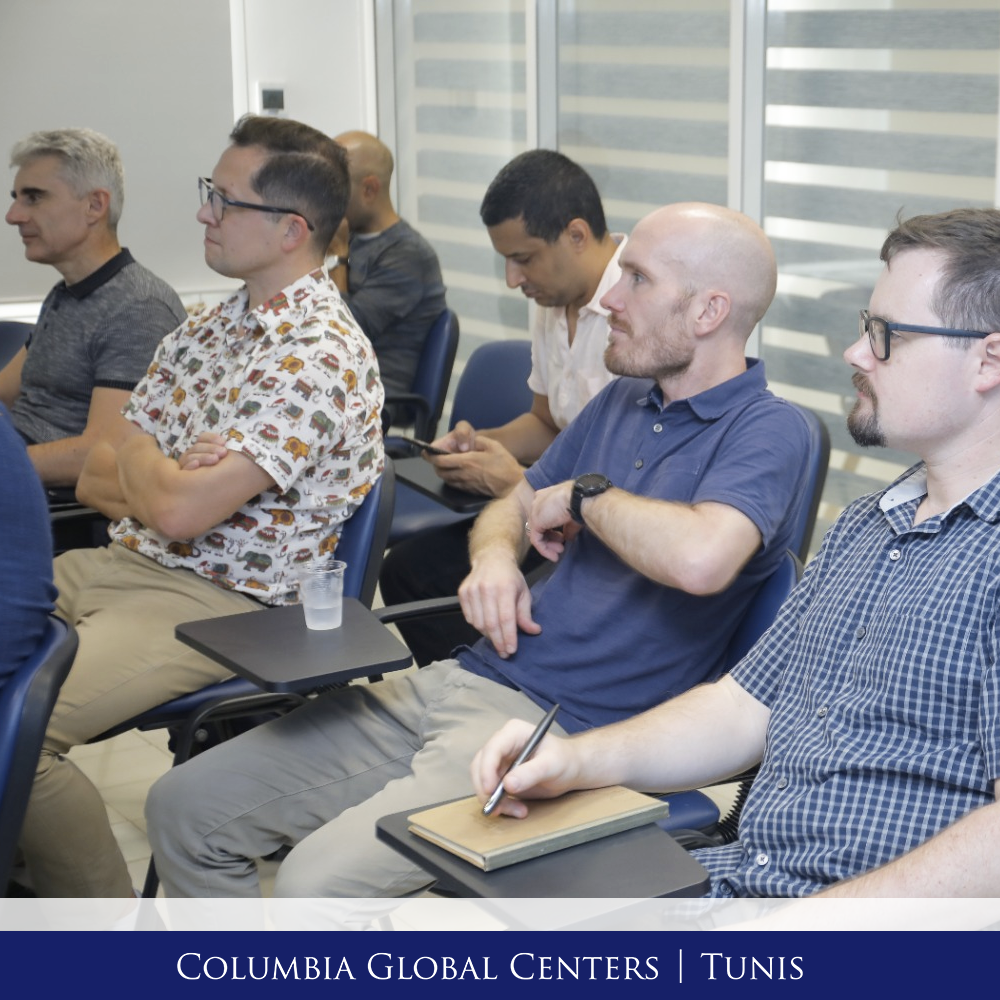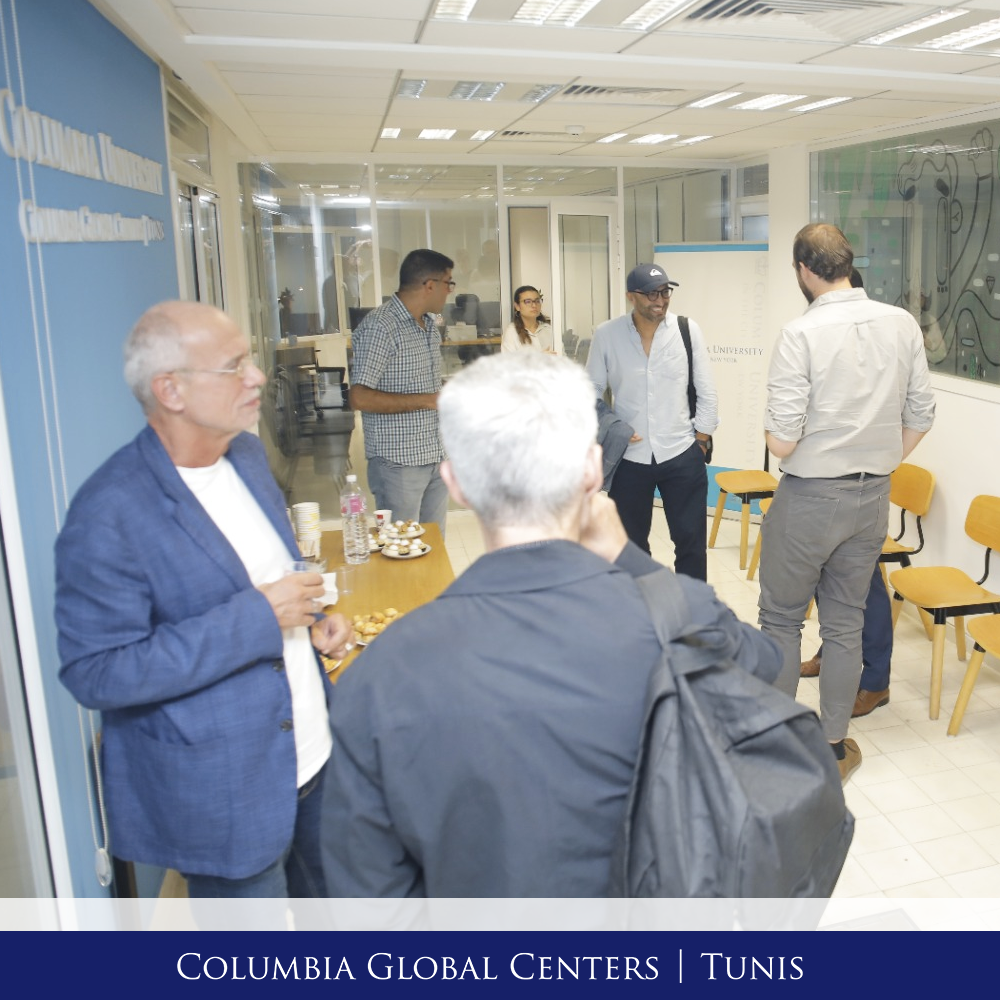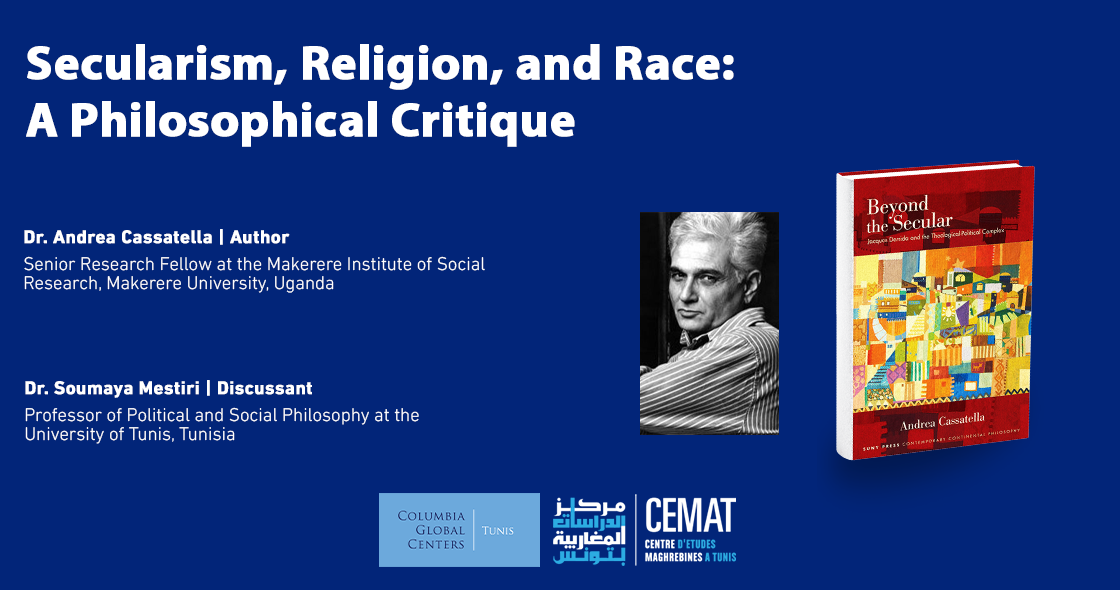Secularism, Religion, and Race: A Philosophical Critique
In a thought-provoking and intellectually stimulating event, participants from diverse backgrounds converged to explore the intricate relationship between philosophy, theology, and politics.
Organized by Columbia Global Centers | Tunis (CGC Tunis) in collaboration with CEMAT, the event, titled 'Secularism, Religion, and Race: A Philosophical Critique,' offered an enlightening journey through the philosophical concepts that have profoundly influenced our comprehension of contemporary society.
The engaging discussion featuring Dr. Andrea Cassatella and Dr. Soumaya Mestiri was centered around Dr. Cassatella's timely new book Beyond the Secular: Jacques Derrida and the Theological-Political Complex. The event kicked off with a deep dive into the works of the eminent philosopher Jacques Derrida. Participants were invited to explore how Derrida's philosophy has transcended the realms of literature and language to profoundly impact political thought and theology.
However, the event ventured far beyond a mere exploration of Derrida's works. Dr. Cassatella, through an in-depth and critical analysis of Derrida's later writings, provided a unique lens to examine the contemporary nexus between religion and politics. This examination masterfully reconnected Derrida's later writings with his early works, focusing on the theological-political issue.
During the event, Dr. Cassatella's presentation provided further insights into the critical examination of contemporary issues. He addressed themes such as the 'Return of Religion,' 'Modern Secular Discourse,' the 'Theological-Political Complex,' going 'Beyond the Secular,' and the 'Relational Approach' between Religion and Globalization. These discussions sparked rigorous debates and challenged conventional viewpoints, enriching the overall discourse and encouraging attendees to delve deeper into the complex interplay of philosophy, theology, and politics in the modern world.
Dr. Cassatella also shed light on the deep entanglements of secularism with the legacy of race and colonialism by exposing the discriminatory hierarchies that the Western-Christian, sexualized, and racialized presuppositions of secular discourse keep producing and maintaining.
Overall, the event served as a valuable platform for fostering critical thinking and promoting a deeper understanding of the philosophical underpinnings that shape our contemporary society. It underscored the importance of ongoing dialogues on these critical topics to further our collective intellectual growth and societal progress.


